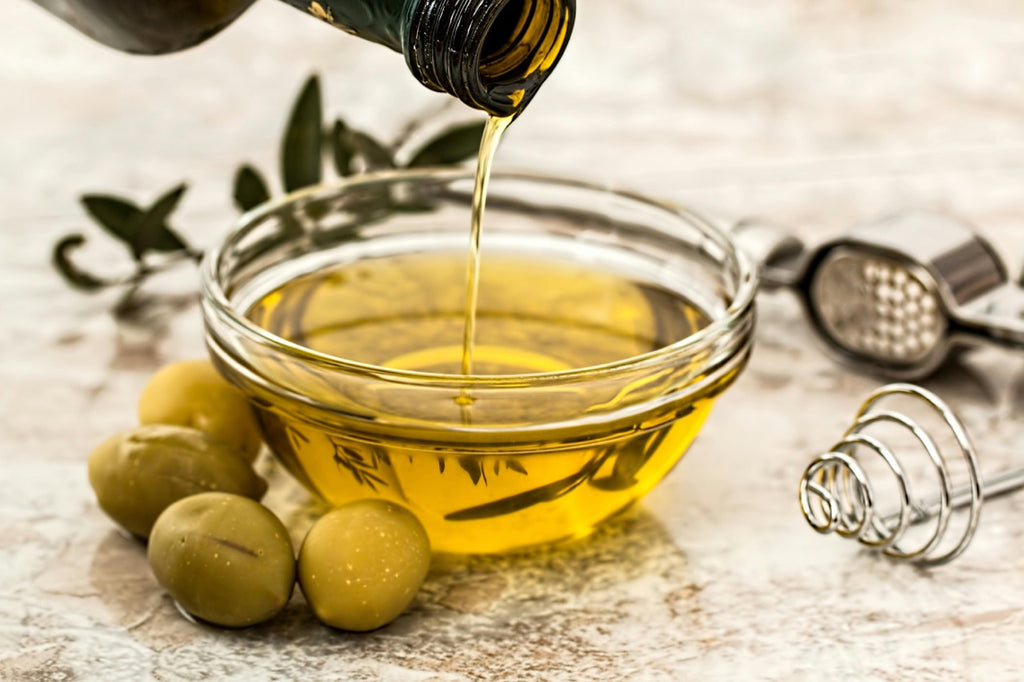
Have you ever wondered why not all CBD oils are the same? With so many options, it can be overwhelming to choose the right one.
From my experience in the CBD industry, I can guide you through the key differences between broad-spectrum, full-spectrum, and isolate CBD oils, as well as the significance of carrier oils.
By understanding these factors and focusing on quality organic hemp extracts, you can confidently select the CBD oil that best suits your preferences.
Key takeaways
- Understanding the differences between full-spectrum, broad-spectrum, and isolate CBD oils is essential.
- Third-party testing is crucial to verify the purity and potency of CBD products.
- MCT oil is the best carrier for CBD absorption, with hempseed and olive oils offering additional benefits but less efficient absorption.

Types of CBD products
There are various types of CBD products available, each suited to different preferences. The main categories include full spectrum CBD, broad spectrum CBD, and CBD isolate. Understanding their unique features can help you pick the right product for your needs.
Full spectrum CBD
Full spectrum CBD contains all the cannabinoids from hemp, including a small amount of THC. This combination can affect how the cannabinoids interact.
Broad spectrum CBD
Broad spectrum CBD retains many cannabinoids from hemp but removes THC. This option is ideal for those who want to avoid THC while still benefiting from other cannabinoids.
CBD isolate
CBD isolate is the purest form of CBD, containing only the CBD compound and no other parts of the cannabis plant.
We don’t offer CBD isolate oils because we believe they don’t provide as much value to our customers due to their inferior product quality.
Choosing the best CBD oil for your needs
Selecting the right CBD oil depends on your personal preferences and needs. With many trusted brands offering high-quality CBD, it’s important to focus on what you're looking to achieve with the product and which type of CBD oil aligns with your goals.
Factors to consider when selecting
When choosing CBD, consider the following important factors:
- Personal needs: Identify your personal preferences and requirements to choose the most suitable product.
- Product quality: Opt for high-quality CBD from trusted brands that provide lab-tested products.
- Lab reports: Certificates from third-party testing can verify the product's cannabinoid content and purity.
Understanding different potency levels
CBD products come in different strengths, typically measured in milligrams. For beginners, it’s advisable to start with a smaller amount and observe how it meets your needs. More experienced users may prefer higher concentrations.
Which concentration of CBD oil should I choose?
Determining the appropriate amount of CBD oil
Finding the right amount involves experimenting with different amounts of CBD until you discover what works best for you. It’s always a good idea to start with a smaller amount and increase slowly.
 The role of carrier oils in CBD oils
The role of carrier oils in CBD oils
Carrier oils play a significant role in CBD products by helping distribute the cannabinoids more effectively. Understanding the different types of carrier oils can impact how the CBD product works and how well it is absorbed by your body.
Hempseed oil as a carrier
Hempseed oil is popular for its nutritional benefits, including omega-3 fatty acids. Although it doesn’t contain CBD, it works well with CBD extract and is easily absorbed by the body.
Olive oil as a carrier
Olive oil is another common CBD carrier, valued for its antioxidants and long shelf life. However, it may not be as efficient at absorbing CBD compared to other carrier oils, and its strong aroma may not be suitable for everyone.
MCT oil as a carrier
MCT oil, sourced from coconuts or palm kernels, is a popular choice due to its high fat content and ability to aid in CBD absorption. It has a neutral taste and is a recommended carrier oil for new CBD users.
Our MCT oil products are available in different flavors: natural, orange, and strawberry.
| Carrier oil | Key features | Pros | Cons |
|---|---|---|---|
| Hempseed oil | Rich in omega-3s, complements CBD | High nutritional value | No CBD content |
| Olive oil | High in monounsaturated fats | Multiple benefits | Less efficient for CBD absorption |
| MCT oil | Easily absorbed, energy-boosting | High bioavailability, neutral taste | More expensive than other oils |
Frequently asked questions
What is the best CBD oil for my needs?
The best CBD oil depends on your personal goals and preferences. Choose high-quality products from reliable brands, and select the strength and type of CBD that best suits your needs.
What are the different types of CBD products available?
There are three main types of CBD products: full spectrum, broad spectrum, and CBD isolate. Full spectrum contains all cannabinoids, including THC. Broad spectrum has many cannabinoids but excludes THC, while CBD isolate is pure CBD.
How do I choose the best CBD oil for myself?
Consider your personal needs, how you plan to use it, and the results you're looking for. Starting with a smaller amount and adjusting over time can help you find the ideal product.
What is the recommended concentration for CBD oil?
It’s best to start with a lower concentration and increase gradually. Monitor how it aligns with your preferences and adjust accordingly for the best results.
What qualities should I look for in a high-quality CBD oil product?
Choose products that are high in quality and purity. Ensure that the brand sources its hemp responsibly and uses third-party testing to confirm the product's safety and strength.
What role do carrier oils play in CBD products?
Carrier oils help your body absorb CBD better. Popular choices include hempseed oil, olive oil, and MCT oil, each offering unique benefits for the user.
How do I find a trusted CBD seller?
Find a trusted seller by checking for certifications, reading customer reviews, and ensuring they are transparent about product sourcing and testing methods.

